Bob Theil | Interview | “So Far”
‘So Far’ by Bob Theil is one of the UK’s best kept secrets of the last 30 years.
A delicate blend of acid-folk-rock with dark tinges and an epic feel with Floydian guitar leads. Features Jimmy Litherland (ex Colosseum/ Jade et cetera) and Mark Brezicki (now with Procol Harum).
Where did you grow up and what were some of your early influences?
Bob Theil: I grew up in the North East of Scotland. My earliest memories were of living on a farm near Brechin and then of the age of eight or nine living in a village called Marykirk. By this stage, I was aware of the pop music of the time through the weekly Sunday pop chart radio show. Also I found that I enjoyed singing along, singing in the school choir and also the Sunday school choir. It’s hard to name anything as an ‘influence’ at this moment in time other than to say I was exposed to Elvis Presley, Billy Fury, Cliff Richard and too many names to mention. If I was to look at the pop charts way back then I am sure I would recall many songs and artists. There was Lonnie Donegan’s ‘My Old Man’s A Dustman’, that I remember vividly, singing whilst working in the garden. Of course I was exposed to various Scottish and English ballads and songs at school where we would regularly tune into music programs for schools, which was mainly music to sing to and Scottish country dancing. So luckily, when I think about it now, I was given a relatively broad grounding in music as a young boy.
When did you first get involved with playing guitar?
It wasn’t until I was twelve or thirteen maybe that I saved up money from working during the fruit-picking season and the ‘Tattie’ (potato-picking) holidays, which I decided, against my father’s wishes, would be to buy a guitar. He had threatened if I got a guitar he would wrap it around my neck! I bought it and kept it secret for around four months, before he discovered that I had not been put off by his encouragement. It was a 6st steel-strung West German guitar which is all I can recall about it. My sister inherited it when I later bought a ‘Davoli’ Italian semi-acoustic with an aluminium head. That’s it in the picture of me on my website. A very strange guitar when thinking of it now but that is the one on which I slowly developed my very basic guitar playing, with the aid of a guitar chord tutor book. By that I mean I learned to play songs on it. The Beatles, Rolling Stones, The Who, The Byrds, The Troggs, Bob Dylan, folk songs, pop songs of a simple hue were the obvious basic beginnings. Generally I picked things up by ear once I had learnt the scales.
What was the scene back then?
The scene back then was beyond me as I was still a schoolboy listening to music, playing guitar with a few friends and picking up on the music magazine weekly ‘Disc’. Radio was the main source of discovery then with of course radio Luxembourg and the pirate stations.
Were you in any bands?
In the 60’s I was still at school! It wasn’t until I moved to London in 1970 that I discovered folk clubs and live gigs. I would have to admit that my guitar abilities were somewhat limited and initially I never had the confidence to play live other than with friends. I remember vividly whilst living in a hostel learning some songs by David McWilliams and also borrowing Leonard Cohen’s ‘Songs From The Room’ LP (I had already discovered Cohen’s first LP while still in Scotland, from a school friend who taught me some early songs on the beach in Montrose) from a French girl working in the girl’s hostel, down the road from the boys hostel in Holland Park. Over the weekend I played and listened to the LP and learned six of the songs. I picked most things up by ear. Also at the time I learned the basics of Fleetwood Mac’s ‘Green Manilishi’ which I loved for Peter Green’s guitar playing. The contradiction in my musical interests and what I was doing on guitar only became clarified when I abandoned and sold my semi-acoustic electric guitar for a 2nd hand B&M 12st acoustic guitar. I think that that was when I merged my ear for songs, with the guitar as an accompanying instrument. The rock-style playing developed on electric guitar became fused with an acoustic style of playing. In the early 70’s it was all about experiencing the bewildering range of music coming through – Jethro Tull, Pink Floyd, Led Zeppelin, Jimi Hendrix, Genesis, Yes, Fairport Convention, Sandy Denny, Nick Drake, Roy Harper, Joni Mitchell, Leonard Cohen, Pentangle, Al Stewart, Bert Jansch, Neil Young etc, were amongst the contrasting artists I was listening to. In fact there are too many others to go into here. Of course with the guitar being the instrument that intoxicated me I was always discovering guitarists, electric and acoustic, whose work I connected with – Rory Gallagher, Jerry Donahue, Tim Renwick, Richard Thompson, John Renbourn as well as the singer guitarists mentioned earlier. This was my experience of the late 60’s into the 70’s and informed my own struggle to play guitar. It was a long struggle too! I recall two LP’s I bought back then, both on the Transatlantic Label which were hugely influential on me. There was the Transatlantic guitar sampler and the Bert Jansch sampler. Needless to say my own playing was well below that kind of standard and I knew that I had to develop my playing. Was I in any bands then? The band I was in, was a duo called Avogadro, which was a fledgling affair with a friend I used to work with in the civil service (Well I had to make money somehow!). Roy Kim Burgess, known as Kim is the guitarist on the ‘Another Flight’ EP. We were both singing, writing songs and learning guitar. We were quite electric and the singer song writing thing was on the wane critically and without any blues influences or traditional folk styles, didn’t fit into the folk scene too easily although people would say we were ‘folk’. I mean we even did Pink Floyd’s ‘Wish You Were Here’ at this time around 1976. Kim had started playing electric guitar as well so the rock side to our musical nature was evident – Not a recipe for success in the climate of singer songwriters being passé prior to the arrival of punk. I’m afraid there are no releases from those days although I do believe I still have a recording of the Avogadro band’s last gig somewhere, including our twenty minute version of ‘All Along The Watchtower’! Ah happy days!
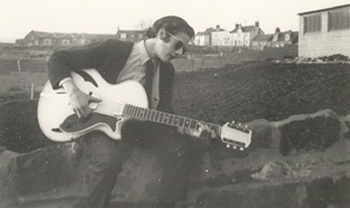
‘Another Flight’ is your first release from 1980.It’s an EP that includes five songs written from 1971 to 1977. How hard was it in those days to get an opportunity to release your material? Would you like to share a story about this release?
The ‘Another Flight’ EP came about because I made a decision to try recording properly, in a studio as opposed to a home demo on a cassette. The ‘Do It Yourself’ ethos of Punk and New Wave opened up the idea. I was in full time employment at the time so it became possible to start planning to record and release material. The problem at the end of the 70’s personally was that my song writing was sporadic and I never felt as if what I was doing was good enough. I still think that today! I am thankful that I was self-critical enough to bide my time, not worry too much about writing and immerse myself into artists and albums that continue to inspire me. So ‘Another Flight’ was really a tryout. The three acoustic tracks ‘Moments Lost’, ‘Reflections’ and ‘Westway’ were my earliest surviving attempts at song writing together with the band’s songs ‘Post Mortem Blues’ and ‘Another Flight’. As I said in the sleeve notes I had already planned to record an LP’s worth of material. The only story to be told about the recording sessions is that they were pretty much done as live recordings. Kim Burgess added extra acoustic and electric guitar and we pretty much sailed through the recording and mixing. The thing pretty much produced itself with Kim and I being in control. The engineer at the studio was more concerned, as I recall, with polishing his guitar and left us to it so the production credits should not have been given to him really. All in all it gave me the taste for more recording.
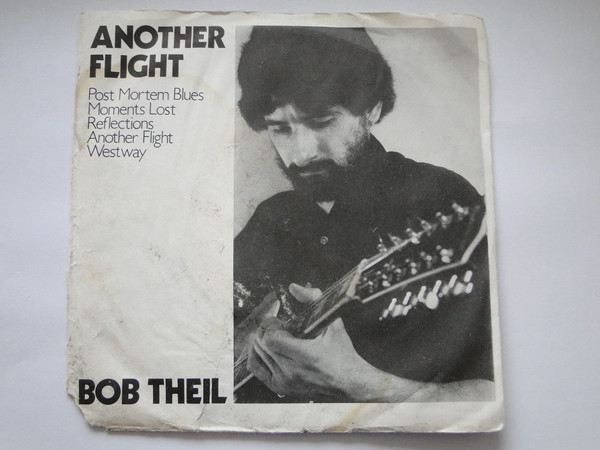
Your most well known album is called ‘So Far’. It contains songs from your early period you recorded at Hallmark Studio, London.
I found the Hallmark studio via a poster I noticed when I was at the legendary Bunjies Folk Cellar one evening. The studio was situated just off Carnaby Street and was run by Steve Hall. My memories of the recording sessions are very pleasant. Steve Hall obviously knew his job (well it was his studio so I suppose he should do) and would suggest configurations while recording which included extra microphones recording my guitar sound bouncing off glass and putting my guitar through a plethora of sound equipment that I didn’t have a clue about. The atmosphere in the studio was conducive to my type of material and overall it was exciting in terms of the quality of sound. It had a little drum room, there was a grand piano all of which I would become more acquainted with after having finished ‘So Far’, but that is another story for another release. I think Steve brought out the best in my guitar playing and vocals. The only way that I knew how to work was just to do a live take so once the guitar and voice had been sorted out in terms of recorded sound, it was up to me to deliver a performance. The only song I did with a click-track was ‘So Far’ which I struggled with because of the slow drawn out pace of the song. All the others were made as a live performance of guitar and vocals. The most exciting part for me was when Steve organised the session musicians. Bill Power on bass was a member of a band called ‘Bone Idle’ and had played on my EP. He brought along Jed Marchant who played the electric guitar on ‘Yesterdays’ and also the piano on ‘December 1918’. The other three musicians were session musicians known to Steve. The production was down to Steve and myself. I had a general idea of what additional instruments each song should have added and really Steve and I collaborated and executed it quite easily. As I commented on my sleeve note on the Canadian CD release in 2004 neither of us could define ‘Producer’ adequately so I guess it was a shared credit although Steve’s expertise in recording matters plays the major part in the final mixes. The most remarkable thing I should add is that the drums were the last thing to be recorded. Unorthodox to say the least! As I mentioned before there was a click-track on ‘So Far’ but ‘One Day, Today Or Tomorrow’ was down to my steady guitar playing and Bill Power’s bass. ‘Westway’ and ‘Yesterdays’ were percussion tracks. Mark Brzezicki, who was just about to be known as Big Country’s drummer, did an excellent job. I remember at one mixing session a guitarist from Osibisa, who was paying a visit to the studio, commented favourably on the fact that ‘One Day’ had been recorded in this way.
How many copies were pressed?
I did send a demo to a couple of record companies and got some standard rebuffs. I very much doubt anyone in A&R ever listened to it. I never really expected much interest. This was in 1982 and thinking about it now, this music must have seemed totally outdated. Singer/Songwriters were pretty much a reviled breed to music paper critics. Besides, even friends of mine did not know where it belonged musically. It wasn’t rock, folk or blues or even pop! It was even suggested to me that the electric guitar was dead, hence the antipathy. So the only option was to arrange to release it myself. This was done as a private release of 1000 LP’s through SRT Productions.
Would you share your insight on the albums’ tracks?
Well, the original sleeve notes to the album were my attempt to share some of the ideas or moments which inspired these songs. Looking at these sleeve notes now after so much time has elapsed is difficult, but here goes.
‘Yesterdays’ – This was an attempt at a kind of descriptive narrative around the theme of looking back and missing something from the past. The young girl in verse 1 is lamenting the loss of her school years. Then the old man in verse 2, watching life passing , enveloped in Christmas euphoria, is feeling the loss of his early years. The rest of the lyrics are my own thoughts on the theme. Really pleased with Mark Brzezicki’s percussion and Jed Marchant’s electric guitar on this one.
‘Lady’—This is more obviously personal and reflects on my reconciling myself to the parting of the ways of a young relationship. Steve Hall did the keyboard part on I believe his Wave 2.2 keyboard. Anyway his keyboard arrangement really suits the song.
‘One Day, Today Or Tomorrow’- The lyrics, along with the music spilled out of me one Saturday afternoon in February 1974. A journey with a friend to spend Christmas 1973 in Switzerland was the source of inspiration. On the way back to Calais, we stopped off in Beauvais, north of Paris. This was at about 4 in the morning so everything was closed. I remember wandering around the town. The lines “standing alone in the square“ refers to the square and statue there. So I placed or imagined “the sad-eyed, dark haired waitress” although she was probably based on a Swiss waitress! Great guitar from Jimmy Litherland and as mentioned already, Mark Brzezicki put the drums on last.
‘Moments Lost’- I think my original note on this one passes the test of time. More than a few moments lost have accumulated since 1982, I can assure you. It’s all an illusion! This is just me with Bill Power on bass.
‘So Far’- Musing on this song after all these years, I was struck by how accurately the lyrics mirror the air of disappointment that I currently feel when contemplating relationships between those closest to us and what we care about or empathise with culturally. The advent of the Internet may make communication more easy, but glancing at what is consumed globally, I find the vacuous nature of much, utterly dispiriting. So far from expanding the mind, the internet as it is developing, also appears to be shrinking imagination. “So Far from living life with love” as the song says. “Oh well, it hardly seems to matter now, besides you ask no more”. I dusted this song off to play in Valencia recently. Jim Covington played the wonderful electric guitar on this one.
‘Westway’ – This short one verse song was rediscovered on an old work cassette around the time I was working on this album. I think I was in the throes of reassessing old demo-cassettes, i.e. discarding the material I judged to be rubbish, when I found ‘Westway’ and promptly realised this could be a perfect closing song for side one of my planned debut LP. I did all the guitars, Bill Power did the bass and then Steve suggested lastly that maybe some drums from Mark Brzezicki would finish it.
‘Reflections’ – This is the first song I ever wrote that survived my critical test. Written in November 1971, it may be a little naive but it was really the guitar that saved it (the E-strings are tuned to D) and maybe the simple hook at the end of each verse. It is very young but then, we all were at some time. I really dedicate it to the beach at Montrose where in my final years of school I recall the amazing summer spent there playing guitar, football and going on biology field trips. It is where I heard my first Leonard Cohen song (Suzanne). Happy days! Jim Covington played the beautiful acoustic lead guitar.
‘Wind In The Wires’ – My first successful guitar instrumental written in March 1976. Originally I called it ‘From The Embers’ for some reason, but I can’t recall the creative process. It was Steve Hall who gave me the new title. When we were recording it we were having trouble with Steve’s multi-track, which kept threatening to burst into flames whilst we were working on the track. Strange but true, so I changed the title. I did the synthesiser on this as well.
‘Who Are We Now’ – Another song I have re-learned recently as it appears to be a favourite of Victor and his friends in Spain. Victor booked me for The Datura Folk Festival 2 which he organised for the 6th and 7th of May last year. This song was written in March 1975 and its theme covers the same area as ‘Yesterdays’ which was written around the same time. This was the first of my songs which was based successfully on my 12str guitar plectrum-picking arpeggio style. Steve Hall played the synthesiser and keyboard arrangement while I did the Moog train effect on the outro.
‘December 1918’ – I remember coming up with the 12str arpeggio introduction and trying to melt it into the normal rhythm guitar for the song itself. I did my part in one go, so I guess I was well prepared. The lyric was inspired by a short story from D.H. Lawrence, called ‘The Border Line’ which described travelling through the Marne country by train not long after the hostilities of WW1 had ceased. Having read quite a bit of poetry from the war poets I was able to imagine a story of a soldier perishing on the western front in the winter of 1915 or 1916 and imagining the grief of his widow in December 1918, post-Armistice day. The last verse was directly inspired by an encounter with an old woman in one of the small streets just off Tottenham Court Road in London. I Imagined her as the widow years after, older, sadder and remembered a comment that an English teacher had made about the post-war years when there were so many young war-widows, the majority of whom never remarried, and lovers who remained spinsters thereafter. The piano chords in the introduction were done by Jed Marchant, the flanged electric guitar was by Jimmy Litherland and the keyboards and synthesisers were the work of Steve Hall.
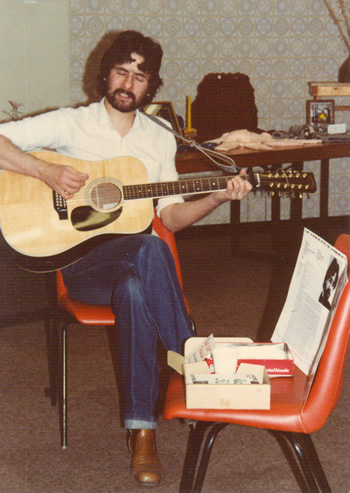
What happened next? Did you play any shows?
Nothing much, really! I went through the process of getting the LP pressed and then had a stack of LP’s delivered. The fun part was the cutting process at Abbey Road Studios done by Nick Webb. You can imagine my excitement to be at such a historically famous recording studio. Walking in the footsteps of the Beatles! And so I suddenly had a pile of LP’s. I had no business and promotion planning in place and so could only promote it myself at any folk clubs I played at. In fact I had decided to keep recording new material and had already written more than 2 albums worth of songs which were hanging around. In between 1982 and ’84 I wrote more material than I had over the previous decade. So I had finally hit a writing streak that seemed to flow effortlessly. So it seemed to make sense to keep arranging recording sessions during the next 4-5 years. Besides, the reactions to ‘So Far’ were lukewarm at best so I felt I had to move on musically. The next project was ‘Songs From The Margin’ which never saw the light of day. From there I financed some recordings for a few other singers, guitarists and songwriters. The finished compilation was called ‘Diverse Brew’ but again there were no takers. Simultaneously I was working on songs more suited to a band set-up because I was enjoying recording sessions with a drummer from Belgium called Walter Mets who was working in the studio doing drumming and engineering sessions. In fact I would be working on these projects at various times during the period of 1983 to ’87. I got lost in work outside of music which financed these recording sessions. I still played a few gigs but really the reaction to ‘So Far’ made me question the worth of the LP and it already seemed to belong to a distant time. The music climate had changed dramatically and my music had never really fitted in at folk, blues and rock clubs. I still enjoyed a lot of new artists but my own music was deemed even by friends to be anachronistic. The distinctive identity of bands and music seemed to have been replaced by a commercial conformity with little regard to individual artistic integrity, with the business model that brought most success being the copying and following of the varying trends hyped as the ‘New Thing’! The music technology explosion around recording equipment and keyboards and the advent of drum machines would have a dramatic effect on how music was recorded and skills were being circumvented by ease-of-access technology. Just ask session drummers and musicians in general how technology impacted upon how they could make a living by using their hard won skills. On the plus side there are many artists who benefited from the technology revolution. However I cannot help but feel that, back then, the best music was struggling to be heard against an overwhelming, unceasing, cacophonous backdrop of banalities, the scale of which, when viewed now, is barely comprehensible. During the following years the struggle has become harder in many more ways than purely economic. The value attached to music has lessened to such a degree, that it has become a cheap valueless form of distraction and entertainment. Obviously my perspective comes from being actively involved and having been reading the specialist music magazines over all these years. For those people who have never read the work of the specialist music journalists and shared the highs and lows expressed by them over the years, there may be a difficulty in understanding comments that do not fall easily into the simplistic easily digested promotion circus journalism that fills the daily newspapers in ‘arts and music celebrity’ coverage now currently the order of the day. It all seems such an irrelevance anyway and then you wonder at what is deemed as culturally relevant. Jarvis Cocker (Pulp) recently observed that music had become the equivalent of scented candles in a room. I am not writing songs that are designed to become a pleasant ambient backdrop for dinner parties or the like, yet that seems to be the gauge against which most music is judged.
What about the 1993 release called ‘Bridging The Silence’?
Ah ‘Bridging The Silence’, the “Lawrence Woolfe project”. Well, the story about this one is still ongoing! This was a compilation album of material from the 1983 to ’87 recording sessions. As I mentioned earlier I had a collection of songs under the title of ‘Songs From The Margin’ which was to be my second release. In addition to that, I was enjoying the recording process so much, working with Mets that I decided to record other material that was more band oriented. Walter and I would record live and this brought out the rock element in me. This other project was titled ‘Bridging The Silence’. The CD with that title, released on the Koch label in 1993, contained 6 tracks from the ‘Margin’ project and 7 from the ‘Bridging’ project. Incidentally the ‘Margin’ collection is due to be released shortly after a somewhat frustrating delay. When the Koch CD came out it soon became apparent that Koch A&R did not know how to promote it. In fact that is what was said to my face. The main man in Koch Europe reportedly questioned why Koch Benelux was releasing this CD. Again the general consensus was that it was a strange production of acoustic guitar and keyboard arrangements. Once ‘Songs From The Margins’ appears I may collect the ‘Bridging’ songs together with other archive material for future release.
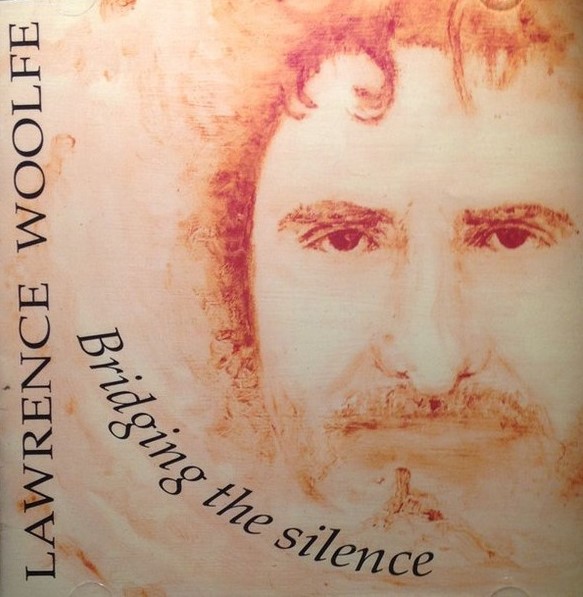
You are still very active these days. In 2003 you released ‘Playing It All For Laughs’ and your latest LP is called ‘The Ghent Sessions: Songs From The Archives, Volume 2’.
Not as active as I feel I ought to be! I mean, 10 years between releases isn’t exactly a hurried schedule! The song ‘Playing It All For Laughs’ was written in late October 2001, and encouraged by Bert Leysen, a musician friend in Antwerp, I did some recording the following month. I recorded a number of songs over a period of 6 months. Although I had a large backlog of material I could record and had already at least two other collections planned for CD’s, I broke with my usual considered retrospective approach to planning an LP/CD and decided to record a few things I was writing at that moment and picked a few songs from before 2001 that seemed to fit in thematically with the new material.
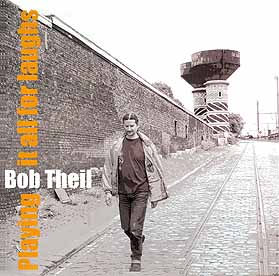
I suppose this is the advantage of having a stockpile of material. The other new songs, written during the recording process, were ‘Cast’ (November ’01), ‘Legacy’ and ‘What’s It To You Blues’ from February ’02. The LP was released in May 2003 and looking at my back pages, I am astonished at just how many songs I wrote between starting the LP and its release. So I mean it when I say I should be more active in getting some of this material recorded. Which brings us to ‘The Ghent Sessions’ CD and LP.
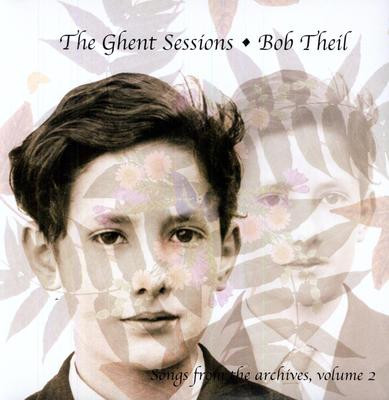
This contained recordings of songs that I did in 1997 and ’98 with Dave Foster, which were intended only as an acoustic demo to get gigs. We did, when finally letting Michael Klein at Heartbeat Sound in London do some post production, work on the digital recordings to make them more sonically palatable. It was only in 2005 that the idea of releasing it came about with a bit of prompting by Bert Leysen. It was never originally recorded with the view of becoming an LP/CD. So Vinyl Japan released the CD in 2007 as a follow-up to the previous release of ‘So Far’ on CD in 2006.
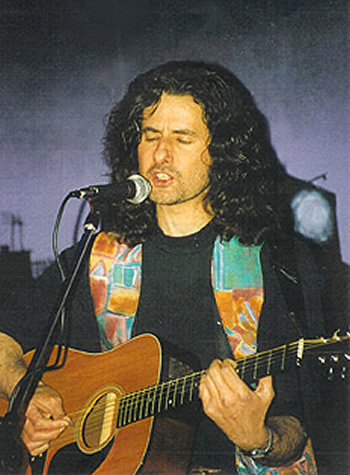
Golden Pavilion Records did a reissue including the EP ‘Another Flight’.
Yes, I think Golden Pavilion has done a good job. The front cover artwork is particularly atmospheric and I think an improvement on the original. The gatefold sleeve (as with the Guerssen 2 LP release of 2006) is a welcome throw-back to the early 70s. On this new release the backdrop on which the lyrics are printed is wonderfully evocative. I never thought that the EP would ever be re-released as 7-inch vinyl! The whole thing is a very attractive package.
Is there anything unreleased?
Yes! There are a few things hanging around! As you will guess from my earlier responses I have a great deal of unreleased material waiting in the wings. The distinction I would make is between the amount of unreleased recorded material that exists and the amount of unrecorded material that exists. Of the recorded material that exists, the imminent release of ‘Songs From The Margin’ recorded sporadically post-‘So Far’ to around 1986 to ’87 is my most pressing concern. Other recordings from that time, from the ‘Bridging’ project, exist and I hope to collect them together from another archive release. In addition to this there is a follow up collection to ‘The Margin’ songs plus recent recordings of material post ‘Playing It All For Laughs’.
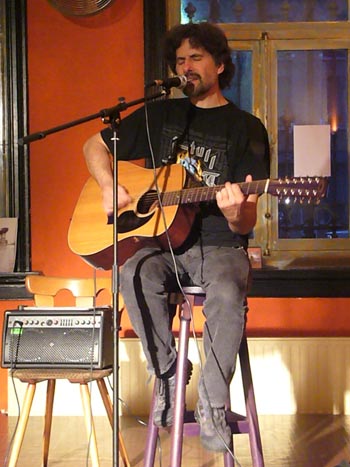
What currently occupies your life?
Like many of us, I guess outside of music, I’m struggling to survive, make sense of our nanosecond culture, and generally musing on the state of human affairs. Sounds like fun doesn’t it?! Of course all my future plans are involved in music. However broken the business model is now, I see some future in releasing small quantities of CD’s and LP’s. The problem is to have the finances to continue and hopefully support will arrive from the ranks of those who still care for the type of music that I cannot help but create. The poet Stevie Smith wrote some lines that spring to mind, about her being too far out in the sea and her waving being misinterpreted, while in actual fact she is drowning. I guess in many ways I feel that I am in that position with my music. Thank you for your time and interest.
Klemen Breznikar

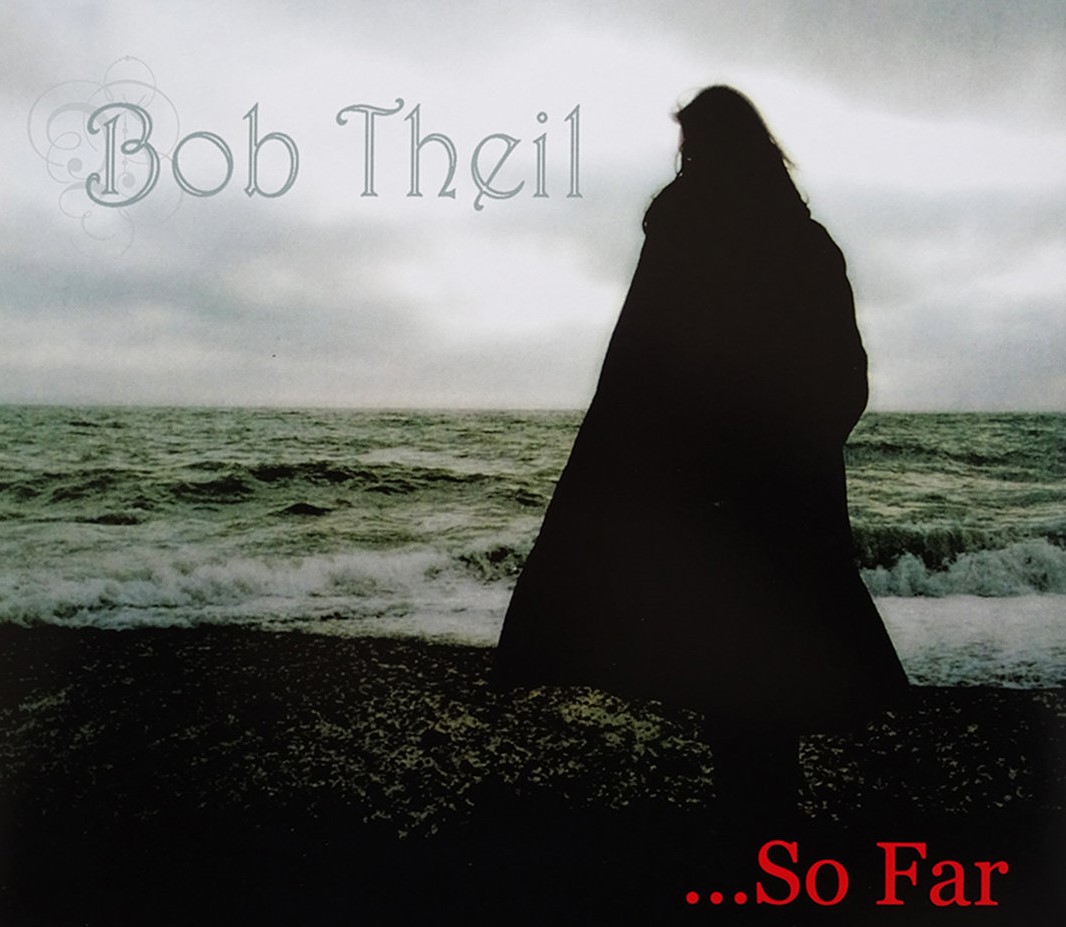
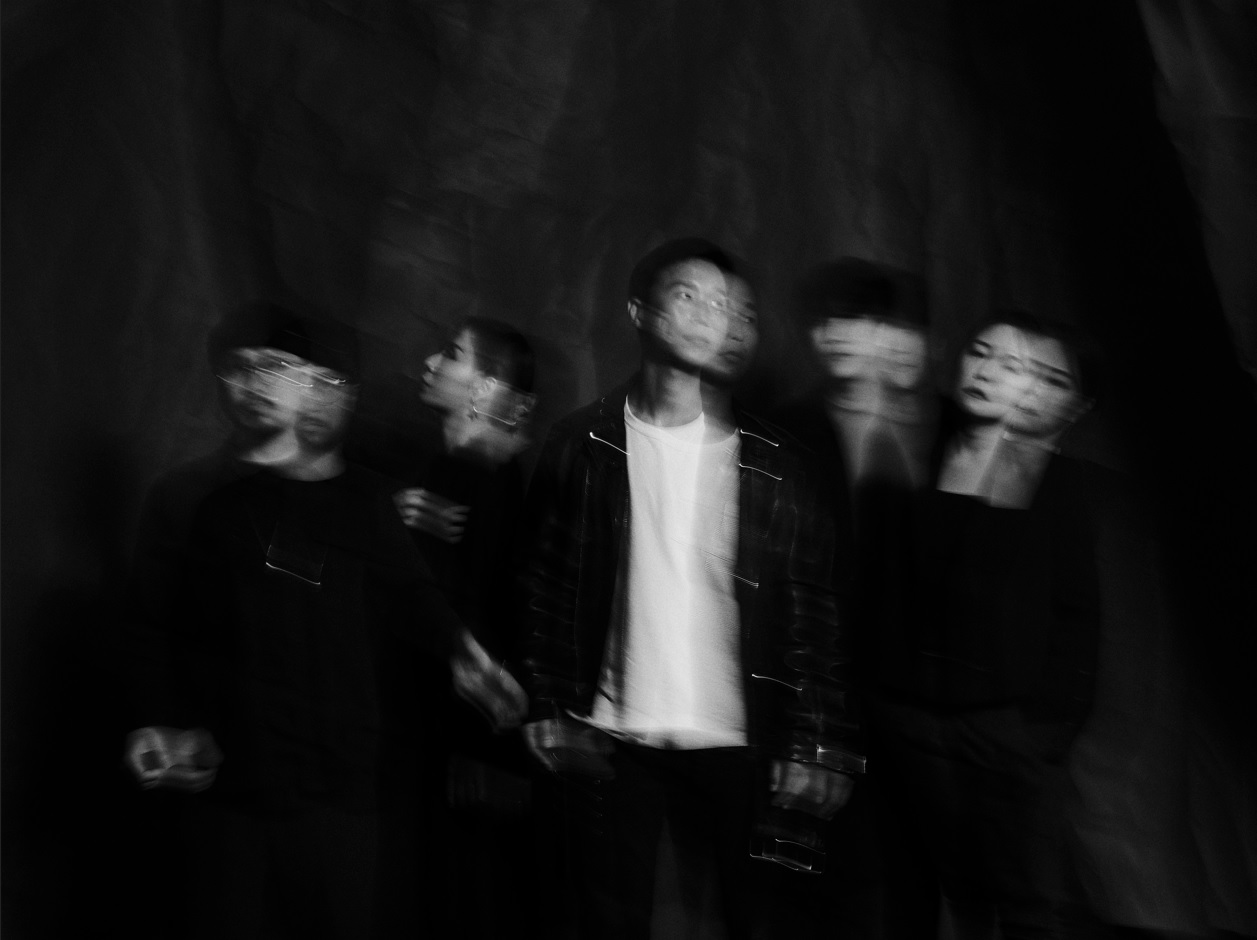


Back in the late 60s I saw Bob perform in a school concert that took place in the Montrose Academy Assembly Hall – (unless I'm confusing him with someone else) – a couple of instrumentals on electric guitar if I remember correctly. When I read the article the memory suddenly came back to me. Glad to hear he's still making music. Good luck to him.